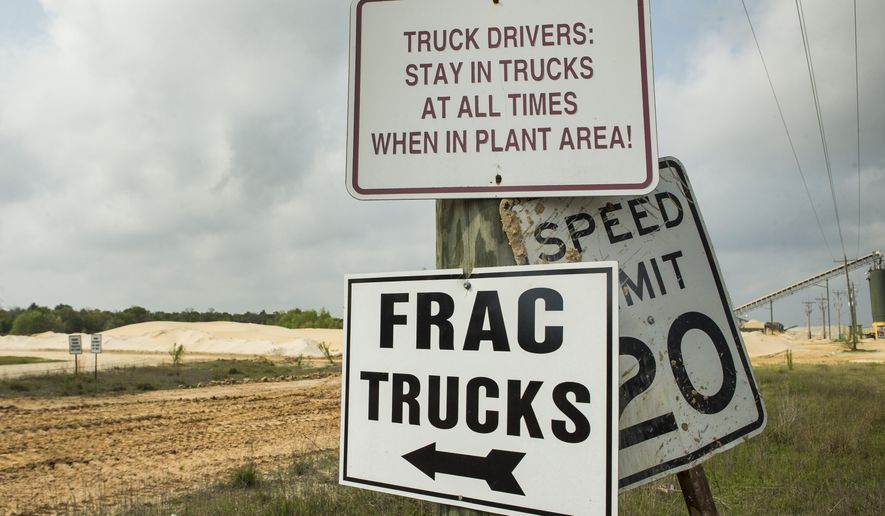The Obama administration’s 2015 fracking rule was never actually implemented, thanks to an ongoing court battle, and it apparently never will be.
The Interior Department published a final rule Friday in the Federal Register repealing immediately the hydraulic-fracturing regulation on federal lands, saying that “we believe it imposes administrative burdens and compliance costs that are not justified.”
The previous fracking rule was already moribund after a federal judge in Wyoming struck it down in June 2016 in response to a four-state lawsuit, holding that the Bureau of Land Management had overstepped its authority by acting without congressional approval.
The U.S. Court of Appeals for the 10th Circuit had given the BLM until Jan. 12 to move ahead with its appeal, but the repeal renders the case moot.
The decision met with cheers from Western lawmakers and oil-and-gas advocates, who had argued that the federal rule duplicated existing state regulations on hydraulic fracturing and energy production.
“I applaud the Trump administration for reversing this duplicative and overreaching rule,” said House Natural Resources Committee Chairman Rob Bishop. “Robust, tailored regulation at the state level is a better approach. I look forward to working with the administration to realize this same approach in other areas of resource management.”
Barry Russell, president and CEO of the Independent Petroleum Association of America (IPAA), said the Obama-era rule “was overly restrictive and did not make hydraulic fracturing any safer than current state laws.”
The IPAA and Western Energy Alliance had sued to block the rule in a lawsuit that included the states of Colorado, North Dakota, Utah and Wyoming and the Ute Indian Tribe.
“The rescinding of this burdensome rule, which was never enacted due to IPAA and Western Energy Alliance’s ongoing legal challenge, will save our member companies and those operating on federal lands hundreds of millions of dollars in compliance costs without any corresponding safety benefits,” Mr. Russell said in a statement.
Meanwhile, the repeal was decried by environmentalists who described the fracking rule as a necessary protection on water quality.
“Fracking is a toxic business, and that’s why states and countries have banned it,” Brett Hartl, government affairs director of the Center for Biological Diversity, told the AP. “Trump’s reckless decision to repeal these common-sense protections will have serious consequences.”
The repeal comes as the latest in a series of regulatory rollbacks initiated under President Trump, who has argued that such regulations are “choking” economic growth.
WEA President Kathleen Sgamma said the Obama-era rule was driven by politics.
“It was clear from the start that the federal rule was redundant with state regulation and politically motivated, as the prior administration could not point to one incident or regulatory gap that justified the rule,” Ms. Sgamma said.
The Obama fracking rule required operators to obtain BLM approval before fracking on federal lands in order the safety of water supplies, make sure fluids flow back to the surface, and disclose chemicals used in the process.
“The BLM believes that it is not only better policy to rescind the 2015 rule to relieve operators of duplicative, unnecessary, costly and unproductive regulatory burdens, but it also eliminates the need for further litigation about the BLM’s statutory authority,” the Friday filing said.
Foes of hydraulic fracturing, a widely used extraction process in which water, sand and fracking fluid are injected at high speeds to unleash fossil fuels trapped in underground rocks, argue that the process threatens groundwater supplies.
The industry has countered that “there have been no confirmed cases from groundwater contamination from hydraulic fracturing itself in the at least 2 million wells fracked over the past 65+ years.”
• Valerie Richardson can be reached at vrichardson@washingtontimes.com.




Please read our comment policy before commenting.